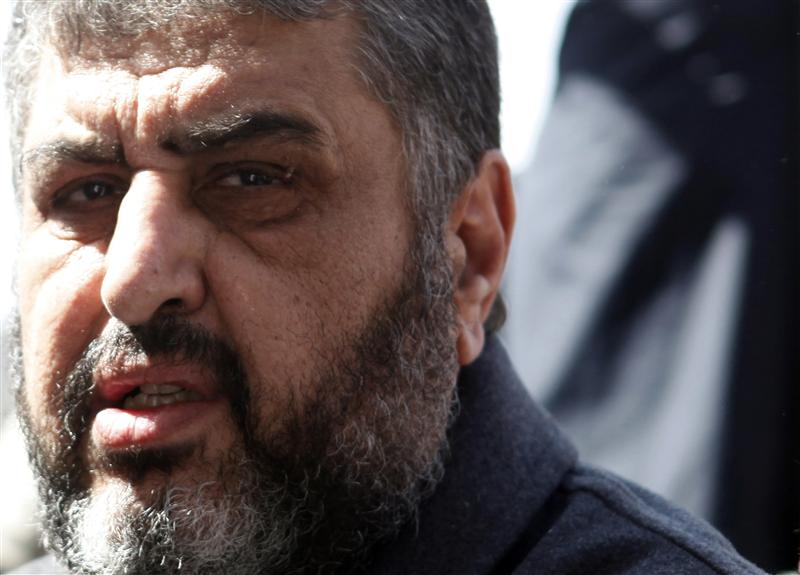Egypt army pardons Brotherhood presidency nominee-lawyer

Egypt's military has dropped two court convictions against the Muslim Brotherhood's new presidential candidate Khairat al-Shater, clearing him to run in the elections to replace ousted leader Hosni Mubarak, the movement's lawyer said on Sunday.
In a policy reversal on Saturday, the Brotherhood opted to field a candidate to contest the votes in May and June and named Shater, a wealthy businessman, as its choice after deciding the other candidates were not worthy of its support.
Shater, 61, was tried in a military court in 1995 and sentenced to five years in jail on charges of "reviving" the Brotherhood. He was also tried and convicted in 2007 on charges of providing university students with arms and training.
He was jailed for seven years in the 2007 case but was freed with many other Brotherhood members in 2011 after serving four and a half years of the sentence.
Under Egyptian law, former convicts cannot occupy official posts.
"All charges and cases against engineer Khairat al-Shater have been dropped," the Brotherhood's lawyer Abdel Moneim Abdel Maqsood told Reuters.
"Shater now has all the civil rights he was deprived of and can now exercise his political rights including running for an official post in the country," he said.
The military would not confirm this but one army source said the Brotherhood would not publicly name any candidate of its own without prior clearance from the ruling military council.
Abdel Maqsood said he had picked up presidential application papers on Shater's behalf from the electoral committee.
Mubarak's overthrow in February last year ended the Brotherhood's official exclusion from politics. Before that, its leaders were often rounded up by state security in what human rights groups said was a deliberate policy to curb their political reach.
The Brotherhood did not begin the protests that toppled Mubarak but has been their most obvious beneficiary, capitalising on a formidable grass-roots campaign machine to secure top spot in a recent parliamentary vote.
That puts Shater among the frontrunners in a race billed as Egypt's first free and fair election in six decades, even though others have months of unofficial canvassing under their belts.
Analysts said the decision to field a presidential candidate suggested the Brotherhood, now on the brink of power for the first time in its 84-year history, was worried it could have its new found influence snatched away.
Shater's candidacy is likely to split the Islamist vote in the elections further. There are three other Islamist candidates running.
But liberals may still fret over Shater's bid as it signals the rising influence of Islamists after they swept parliament and now dominate an assembly writing a new constitution.
U.S. Secretary of State Hillary Clinton said on Sunday while visiting Istanbul that the United States will be watching Egypt's political process, urging political actors not to discriminate against minorities.
Many Coptic Christians, who represent around 10 percent of Egypt's population of over 80 million, have voiced concern over the rise of groups pledged to a stricter application of Islamic Sharia law.
(Editing by Tom Pfeiffer and David Stamp)









facebook comments